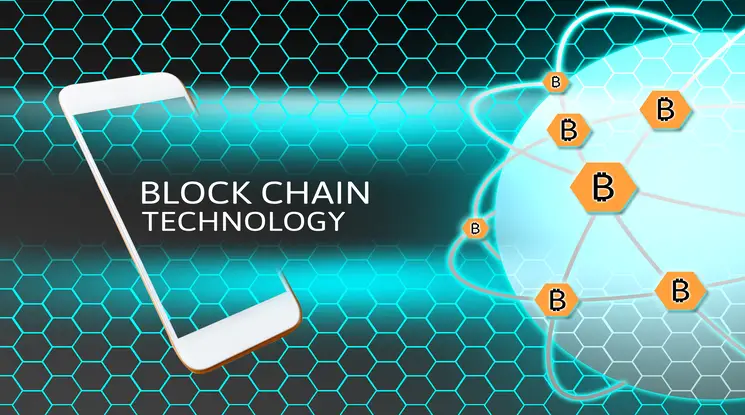In the fast-paced world of technology, few innovations have captured our imagination quite like blockchain. Originally conceived as the foundation for cryptocurrencies like Bitcoin, blockchain has evolved far beyond digital coins. It’s a transformative force that’s reshaping industries, from finance to healthcare. In this blog, we will delve into the latest trends in blockchain technology, explore its applications beyond cryptocurrencies, and discuss the evolving regulatory landscape that is keeping pace with this revolutionary technology.
Understanding Blockchain Basics
Before we dive into the latest trends and applications, let’s start with a brief overview of what blockchain technology is. At its core, blockchain is a distributed ledger that records transactions across a network of computers. What sets it apart is its decentralized and immutable nature. Each transaction, or “block,” is added to a chain in a sequential order. Once a block is added, it cannot be altered, making the information within it highly secure.
Blockchain Trends
DeFi (Decentralized Finance)
Decentralized Finance, or DeFi, is one of the most exciting trends in the blockchain space. DeFi platforms use smart contracts to create financial services that are accessible to anyone with an internet connection. These services include lending, borrowing, trading, and earning interest. DeFi has the potential to revolutionize the traditional financial system by reducing intermediaries, increasing accessibility, and offering greater financial inclusivity.
NFTs (Non-Fungible Tokens)
Non-Fungible Tokens, or NFTs, have taken the art and entertainment world by storm. NFTs are unique digital assets that represent ownership of a specific item, like digital art, music, or collectibles. They are bought and sold on blockchain platforms, ensuring the authenticity and provenance of digital assets. NFTs have opened up new opportunities for creators to monetize their work and connect with their audience directly.
Blockchain in Supply Chain
Blockchain technology is making its way into supply chain management. By recording every step of a product’s journey on an immutable ledger, companies can increase transparency and traceability. This can help prevent fraud, reduce errors, and improve the overall efficiency of supply chain operations.
Blockchain in Healthcare
Blockchain has the potential to revolutionize the healthcare industry. Patient records can be securely stored and shared among healthcare providers, ensuring data integrity and patient privacy. This technology can also help streamline billing and insurance processes.
Sustainability and Energy Trading
Blockchain is playing a role in creating more sustainable energy systems. Through blockchain, energy producers can track and trade renewable energy certificates. This encourages the development of cleaner energy sources and promotes a more environmentally friendly future.
Applications Beyond Cryptocurrencies
Voting and Elections
Blockchain has the potential to revolutionize voting systems by providing a secure and transparent way to conduct elections. By recording votes on a blockchain, it becomes nearly impossible to manipulate or tamper with election results.
Intellectual Property Protection
Artists, writers, and creators can use blockchain to prove ownership and protect their intellectual property. By timestamping their work on a blockchain, they can provide undeniable evidence of when their creations were made.
Real Estate Transactions
Blockchain simplifies and secures the buying and selling of real estate. Smart contracts can automate the process, reducing the need for intermediaries like real estate agents and lawyers. This makes transactions faster and more cost-effective.
Identity Verification
Identity theft is a growing concern. Blockchain can provide a secure way for individuals to control and verify their own identities. Users can selectively share personal information without exposing their entire identity, enhancing privacy and security.
The Evolving Regulatory Landscape
As blockchain technology continues to grow and expand, governments and regulatory bodies are grappling with how to govern it effectively. The key objectives of blockchain regulation include:
- Consumer Protection: Regulators aim to protect consumers from fraud and scams related to cryptocurrencies and blockchain projects. They are working to establish rules for Initial Coin Offerings (ICOs) and ensure that investors are well-informed.
- AML and KYC Compliance: Anti-Money Laundering (AML) and Know Your Customer (KYC) regulations are being adapted to cover blockchain-based financial services. This helps prevent illegal activities like money laundering and terrorist financing.
- Taxation: Governments are working to determine how to tax cryptocurrencies, as well as how to collect taxes from individuals and businesses engaged in blockchain-related activities.
- Data Privacy: With the increasing use of blockchain in areas like healthcare and identity verification, regulators are focusing on how to protect sensitive data and ensure compliance with data privacy laws.
- Smart Contract Regulation: Smart contracts are a new frontier in the legal world. Regulators are working to create a framework that can enforce smart contracts and resolve disputes that may arise.
Conclusion
Blockchain technology is undoubtedly a game-changer. Its latest trends and applications are pushing the boundaries of what’s possible in various industries. From DeFi to NFTs, the potential of blockchain seems limitless. However, as it continues to evolve, so too must the regulatory landscape to ensure that innovation is balanced with consumer protection and the rule of law. As blockchain technology reshapes the world, it’s crucial to stay informed and be part of the conversation, as we’re witnessing a transformative period in the history of technology.
If you’re in need of a skilled blockchain developer or agency, look no further. We’re professionals in the blockchain industry, ready to bring your vision to life

